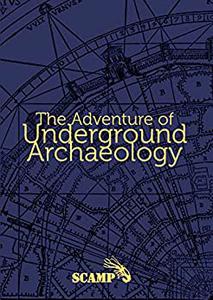
The Adventure of Underground Archaeology by Gianluca Padovan
English | October 26, 2022 | ISBN: N/A | ASIN: B0BKR64D9X | 181 pages | EPUB | 10 Mb
The study and registration of artificial cavities means the documentation of underground structures. Just as Man started creating buildings on the surface of the Earth, over the course of time, he also perforated the surface thus creating new spaces and handing down structures which are essentially intact, which can be studied, restored and even utilised. In fact there exists an underground heritage, consisting of structures both built and buried underground over the passing of time. Our interpretation and understanding of such structures is a source of interesting information on our past, in favour of the present.
Table of Contents:
1. UNDERGROUND
1. Underground Archaeology
1. Underground monuments
3. Why man creates artificial cavities
8. Underground investigations
11. Favourable and Unfavourable Stratigraphic Units
12. Basic trinomial
15. Geological terrain
15. Physical site characteristics
17. Place history
20. Understanding the purpose of an artificial cavity
21. Research and processing
2. ARCHAEOLOGY AND SPELEOLOGY
25. Archaeology and Artificial Cavities
26. Speleology and Artificial Cavities
29. The seven primary typologies
3. DEFINITION OF AN ARTIFICIAL CAVITY
59. Artificial cavities as a heritage
59. Artificial cavities
63. Other structures classified as artificial cavities
67. Structures to be classified as "artificial cavities"
68. Census and cataloguing of artificial cavities
69. The cadastral form and its compilation
4. FIELD INVESTIGATION
81. Research prospecting
82. Cartography
83. Toponymy
85. Applied topography
90. Photogrammetry and photointerpretation
92. Geophysics and Geology
93. Planimetric survey
96. Photography and video
98. Mining archaeology
99. Surface prospecting in mining archaeology
102. Production cycles and historical landscape
103. Archaeometry
5. ADVANCEMENT
105. Speleology
106. Speleology and artificial cavities
110. Underwater speleology
115. Biospeleology
118. Risks
BIBLIOGRAPHY
127. Bibliography
Please Help Me Click Connect Icon Below Here and Share News to Social Network | Thanks you !
